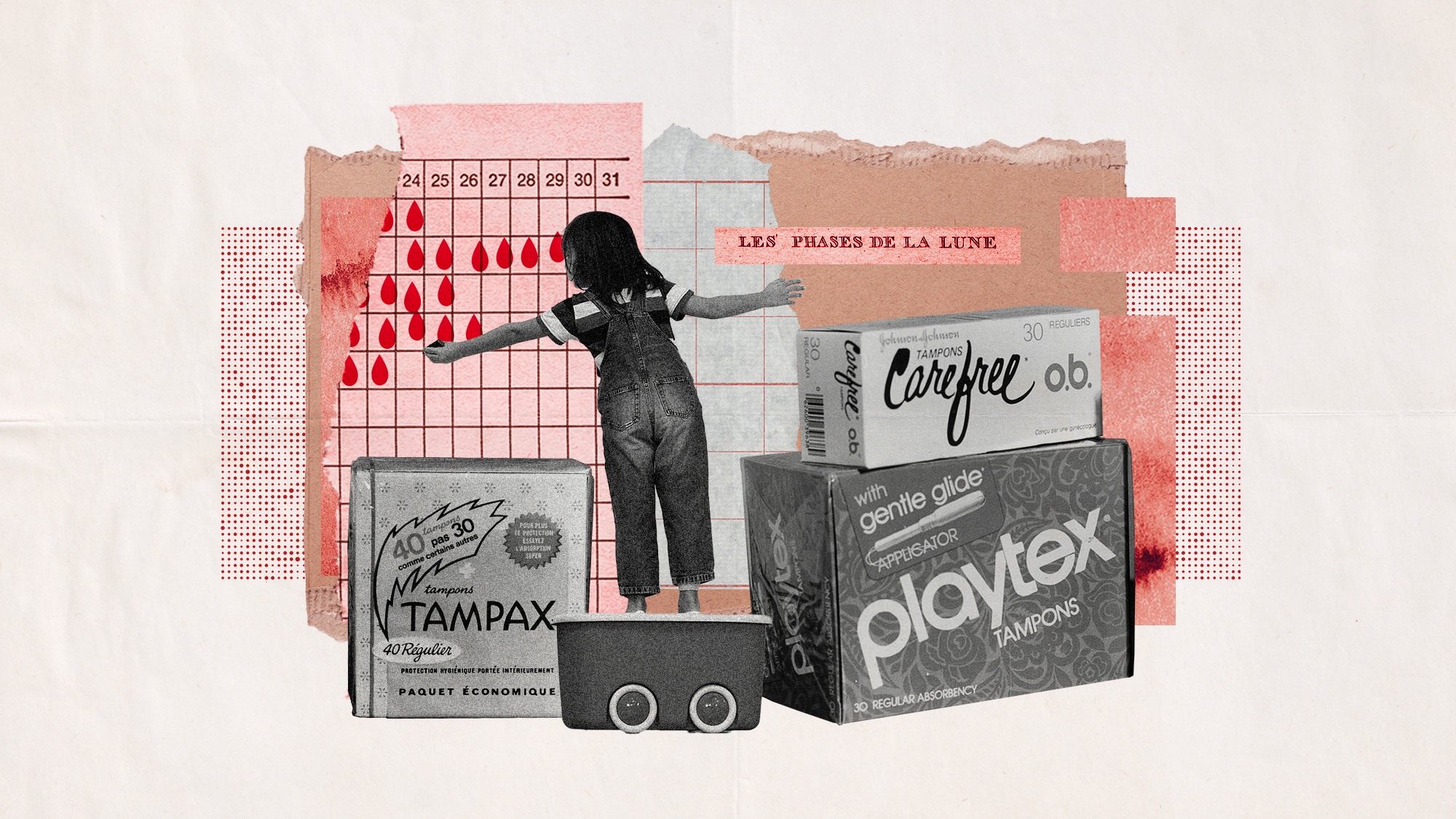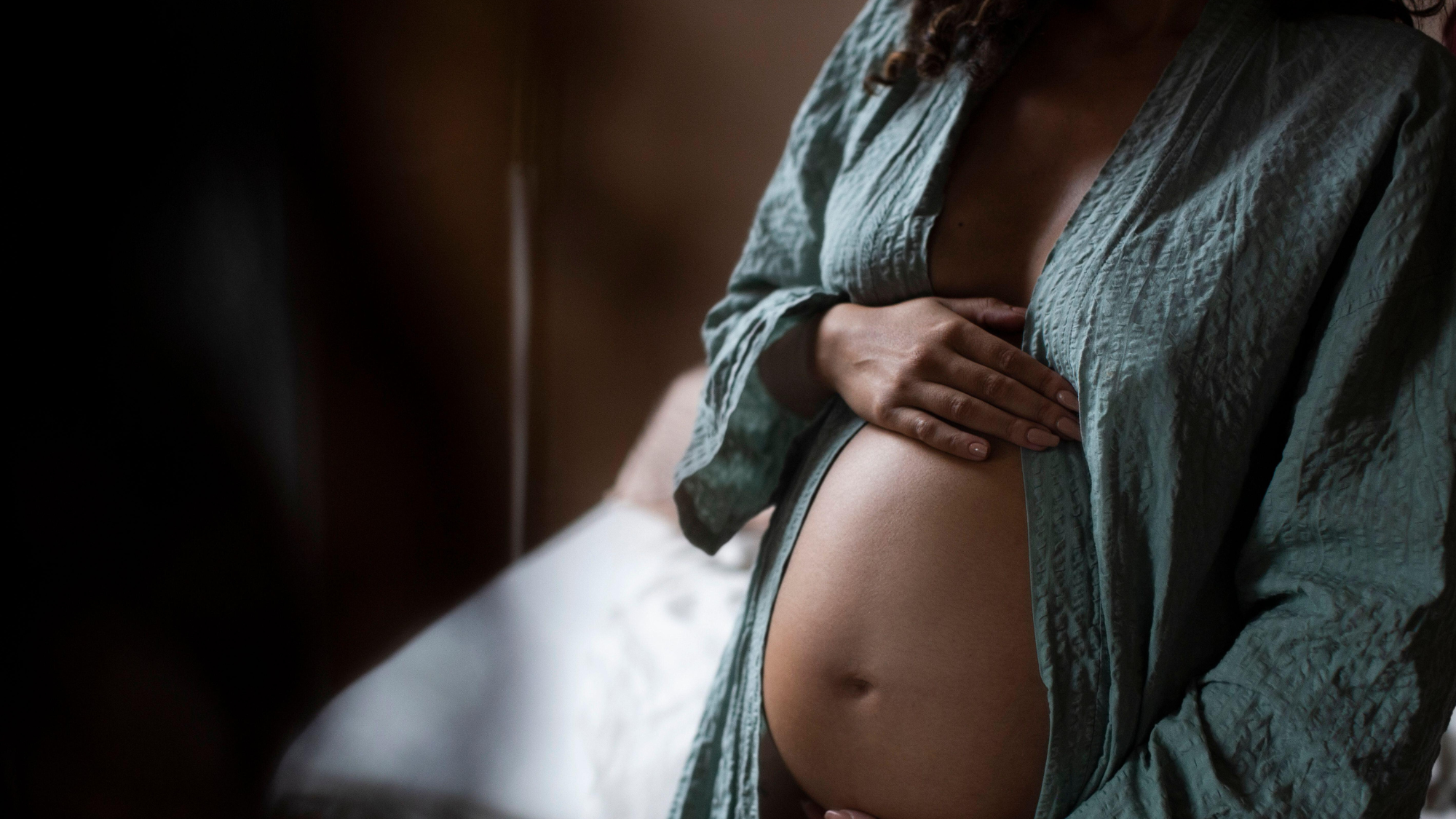Why are girls starting puberty earlier?
Getting older, younger


A free daily email with the biggest news stories of the day – and the best features from TheWeek.com
You are now subscribed
Your newsletter sign-up was successful
Girls in the U.S. are getting their first periods earlier than they did in the 1950s and '60s. This aligns with a growing global pattern of children entering puberty at younger ages. Girls who begin menstruating earlier are at risk for more serious health conditions in the future. Experts posit that lifestyle, stress and nutrition could be responsible for the trend, and that it will likely only worsen over time.
How does early puberty affect girls?
American girls are getting their first periods, on average, approximately six months earlier than they did 75 years ago, according to a study published in the journal JAMA Network Open. The percentage of girls experiencing menarche, or the onset of menstruation before the age of 11, increased from 8.6% to 15.5%, and the number of girls starting menstruation before age 9 more than doubled. It is also taking longer for girls' periods to adhere to a regular cycle. "It's important to educate caregivers, parents and care providers on this trend so that we can also prepare our children," Dr. Shruthi Mahalingaiah, the study's co-author, said to NPR. The trend is even more prominent in girls of color. "The trend toward earlier menarche age was more pronounced for Black, Hispanic and Asian women than for white women, as well as those with lower socioeconomic status," said The New York Times.
Earlier menstruation can be a sign of other health issues. "Early menarche and irregular periods can signal physical and psychosocial problems later in life," Dr. Zifan Wang, the lead author of the study, said to CNN. "These trends may contribute to the increase in adverse health outcomes and disparities in the U.S." Irregular menstruation signals an imbalance of the hormones estrogen and progesterone, which has been linked to cardiovascular disease, polycystic ovarian syndrome (PCOS) and cancer. Early periods can also have mental health consequences. "The younger you are when you get your first period, it's very confusing," said Mahalingaiah. "There's still a lot of stigma and silence around it."
The Week
Escape your echo chamber. Get the facts behind the news, plus analysis from multiple perspectives.

Sign up for The Week's Free Newsletters
From our morning news briefing to a weekly Good News Newsletter, get the best of The Week delivered directly to your inbox.
From our morning news briefing to a weekly Good News Newsletter, get the best of The Week delivered directly to your inbox.
Early onset menstruation is part of a global phenomenon of early puberty affecting both boys and girls. "A growing number of children are showing signs of puberty — developing breasts, acne, pubic hair or a deepening of the voice — even younger than the average," said NBC News. "Starting puberty significantly younger than age 8 for girls or age 9 for boys — a condition called precocious puberty — may have lasting repercussions on a child's mental and physical development."
Why is this happening?
The menstrual cycle can be an indicator of women's health. "You want to make sure that the body is regulated," Dr. Eve Feinberg, an associate professor of obstetrics and gynecology at Northwestern University's Feinberg School of Medicine, said to CNN. "When cycles are not regular, it's generally a sign that something else may be going on." For example, body mass index (BMI) can have an effect on the menstrual cycle, with obesity raising the risk of early puberty in girls. However, "even among people of healthy weight and [who are] potentially underweight, these trends are still occurring," Dr. Juliana Deardorff, head of the Maternal, Child and Adolescent Health program at University of California, Berkeley, said to the Times.
Stress is another one of the factors that can influence menstruation. "When we have higher stress we get higher cortisol hormones, we get higher androgen hormones," Lauren Houghton, an assistant professor of epidemiology at Columbia University who wrote a commentary piece on the study, said to NPR. "Fat tissue converts those hormones into estrogen," she added. "And it's estrogen which signals the body to grow breasts" and eventually trigger menarche. Stress may also be affecting girls of color and lower socioeconomic status more severely, as research has "linked early menarche to external stressors, like structural racism, abuse at a young age and financial insecurity," said the Times.
Environmental and lifestyle factors may also be contributing. Exposure to certain pollutants and chemicals can disrupt the body's endocrine system, which is responsible for hormones. Pesticides and heavy metals have been shown to elicit negative health outcomes. Leading a sedentary lifestyle and having a poor diet can additionally increase the risk of early puberty. "We also need research that considers structural drivers, such as socioeconomic and environmental factors," said the study. "Menarche and menstrual cycle regularity are largely considered unmodifiable reproductive factors, a framing that prevents exploration of the ways structural factors interfere with menstrual health."
A free daily email with the biggest news stories of the day – and the best features from TheWeek.com
Devika Rao has worked as a staff writer at The Week since 2022, covering science, the environment, climate and business. She previously worked as a policy associate for a nonprofit organization advocating for environmental action from a business perspective.
-
 Switzerland could vote to cap its population
Switzerland could vote to cap its populationUnder the Radar Swiss People’s Party proposes referendum on radical anti-immigration measure to limit residents to 10 million
-
 Political cartoons for February 15
Political cartoons for February 15Cartoons Sunday's political cartoons include political ventriloquism, Europe in the middle, and more
-
 The broken water companies failing England and Wales
The broken water companies failing England and WalesExplainer With rising bills, deteriorating river health and a lack of investment, regulators face an uphill battle to stabilise the industry
-
 ‘Zero trimester’ influencers believe a healthy pregnancy is a choice
‘Zero trimester’ influencers believe a healthy pregnancy is a choiceThe Explainer Is prepping during the preconception period the answer for hopeful couples?
-
 Stopping GLP-1s raises complicated questions for pregnancy
Stopping GLP-1s raises complicated questions for pregnancyThe Explainer Stopping the medication could be risky during pregnancy, but there is more to the story to be uncovered
-
 RFK Jr. sets his sights on linking antidepressants to mass violence
RFK Jr. sets his sights on linking antidepressants to mass violenceThe Explainer The health secretary’s crusade to Make America Healthy Again has vital mental health medications on the agenda
-
 The controversial Free Birth Society
The controversial Free Birth SocietyThe Explainer Influencers are encouraging pregnant women to give birth without midwife care – at potentially tragic cost
-
 Nitazene is quietly increasing opioid deaths
Nitazene is quietly increasing opioid deathsThe explainer The drug is usually consumed accidentally
-
 The plant-based portfolio diet invests in your heart’s health
The plant-based portfolio diet invests in your heart’s healthThe Explainer Its guidelines are flexible and vegan-friendly
-
 Tips for surviving loneliness during the holiday season — with or without people
Tips for surviving loneliness during the holiday season — with or without peoplethe week recommends Solitude is different from loneliness
-
 More women are using more testosterone despite limited research
More women are using more testosterone despite limited researchThe explainer There is no FDA-approved testosterone product for women
